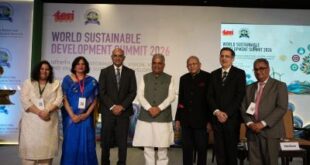Hyderabad, April 29, 2025 — With temperatures soaring across Telangana, the Asian Institute of Nephrology and Urology (AINU) has reported an alarming 2 to 2.5-fold rise in kidney stone cases this summer. On average, AINU is treating 300 to 400 patients per day for kidney stones—a spike directly linked to dehydration, poor dietary habits, and intense heat exposure.
Often dubbed the “Stone Season,” summer poses a serious health threat, particularly to the kidneys. Dehydration, high salt intake, and reduced water consumption are leading factors driving this seasonal surge in stone formation.
*Key Highlights:*
AINU sees 300–400 kidney stone cases daily this summer—one of the highest in recent years.
Cases have doubled or more compared to winter months, reflecting statewide trends.
Sharp rise in adolescent and young adult cases, largely attributed to junk food, sedentary habits, and inadequate hydration.
Stones increasingly detected among children aged 10–17, a worrisome trend linked to school routines, packaged snacks, and sugary drinks.
Women see lower incidence (approx. 40% less than men) but carry additional risks during pregnancy if undetected.
Pediatric cases increasing, raising concern over long-term renal health of future generations.
*Dr. Taif Bendegeri, Senior Consultant Urologist, AINU* , has said, “We are seeing an unprecedented rise in kidney stone cases, especially among young adults and children. The soaring heat and insufficient hydration are the primary culprits. What’s particularly concerning is the increasing trend in school-going children, largely driven by high junk food consumption. Stones are not just a problem of adults anymore. This calls for immediate awareness among parents and schools. Preventive care through hydration, diet, and early screening can make a significant difference, especially in high-risk months like summer.”
*Stay Safe Tips from AINU:*
Drink enough water to keep urine light-colored or clear.
Reduce intake of salt, processed food, and animal protein.
Avoid junk food, packaged snacks, and sugary beverages—especially in children.
Encourage hydration habits in schools and at home.
Be extra cautious if you have a family history or past episodes of kidney stones.
AINU recommends proactive kidney check-ups, especially for families with children showing symptoms like unexplained abdominal pain or frequent urinary discomfort. Staying hydrated remains the most powerful preventive measure.
 Newspatrolling.com News cum Content Syndication Portal Online
Newspatrolling.com News cum Content Syndication Portal Online






